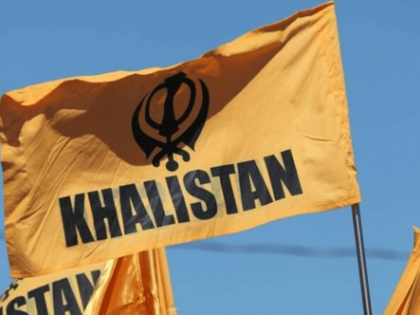Boards, Bhindranwale, and British silence: The Khalistan push in the UK
By IANS | Updated: August 12, 2025 19:15 IST2025-08-12T19:07:46+5:302025-08-12T19:15:05+5:30
New Delhi, Aug 12 A Gurdwara in the United Kingdom being allowed to keep boards featuring the word ...

Boards, Bhindranwale, and British silence: The Khalistan push in the UK
New Delhi, Aug 12 A Gurdwara in the United Kingdom being allowed to keep boards featuring the word “Khalistan” is shocking, but still not surprising. The UK has been lenient towards the Khalistan cause for a long time, and hence, this decision does not come as much of a surprise.
The watchdog for the UK’s charity sector ruled that it had found during an investigation into Gurdwara Shri Guru Singh Sabah in Slough that Khalistan boards did not violate the political guidelines for charities opening in the country. When it comes to the Khalistan issue, the focus is largely on Canada.
India’s diplomatic ties have soured over this issue, and it hit an all-time low when Justin Trudeau was the Prime Minister. The most recent standoff was over the killing of Hardeep Singh Nijjar, a known terrorist, but described in the UK and Canada as a family man, activist, and a hard-working plumber.
The problem is that there is no organised diaspora group that can counter this narrative. The Khalistan lobby has placed its own people in the news outlets in the West. Nijjar, in reality, was part of the proscribed Babbar Khalsa International (BKI).
What is ironic is that there are pressure groups in the UK and Canada that term Nijjar a hardworking man. This despite the Babbar Khalsa International being recognised as a terrorist organisation in the UK, United States, Canada, Japan, European Union, Malaysia, and Japan.
It would be fair to say that the Khalistan groups have the most support in Canada. This is because they are a solid vote bank, and no party goes that extra mile to act against them. In the UK and the US, the challenge is to stop these radical elements from infiltrating political parties by exploiting the human rights causes.
The Sikh Federation UK has glorified the 1987 terror attack on a British School, known as the Dormers Wells mass murder case. There have been referendums and movements related to the 1984 anti-Sikh riots and also the 2020 farmer protests in New Delhi.
When compared to Canada, these radical elements may not enjoy the same kind of political clout in the UK. However, years of efforts and lobbying in Canada have paid off for them. Now, they are trying to replicate the same in the UK, too.
What is concerning is that this support for such elements is no longer a hush-hush affair. The authorities and media in the UK have taken a neutral or sometimes a sympathetic stance towards them. Today in the UK, there is an ecosystem through which these elements receive support from various groups that propagate on their behalf.
They also have social media influencers backing their cause. Like Canada, the Khalistani elements are more aggressive in the UK. Now that they have created an ecosystem of pressure groups, media personnel, and politicians, the pressure is now on the Sikhs to embrace this cause.
There have been incidents of intimidation and harassment of Sikhs by the Khalistani. Pro-India Sikhs are the target, and the attack on the Rangrez restaurant in Hammersmith is an example of this.
Lord Singh of Wimbledon, who is a respected Sikh leader, revealed that he was harassed and silenced by certain individuals and organisations because his views differed from theirs. The biggest issue is that their strength lies in the fact that they control the Gurdwaras in the UK.
The latest Gurdwara in the UK, Guru Singh Sabha, has a picture of slain Khalistani terrorist, Jarnail Singh Bhindranwale.
The other issue is that these groups have become desperate as they are not getting the desired traction. They score brownie points on some occasions, but the broader Indian diaspora does not subscribe to them.
A security breach had been reported during External Affairs Minister Dr S Jaishankar’s visit to the UK. A demonstration was staged by pro-Khalistan activists outside Chatham House in London. The protesters carrying flags and loudspeakers chanted slogans as the Minister engaged in talks inside the venue.
In another incident, these elements stormed a theatre in London to halt the screening of the film Emergency. The UK has largely remained silent on such incidents.
The Indian government states that while many countries have failed to curb this menace, they do not realise that it will come back to haunt them very soon. These are highly dangerous elements who have the backing of the ISI, and if frustrated beyond a point, can prove to be very lethal.
Disclaimer: This post has been auto-published from an agency feed without any modifications to the text and has not been reviewed by an editor
Open in app